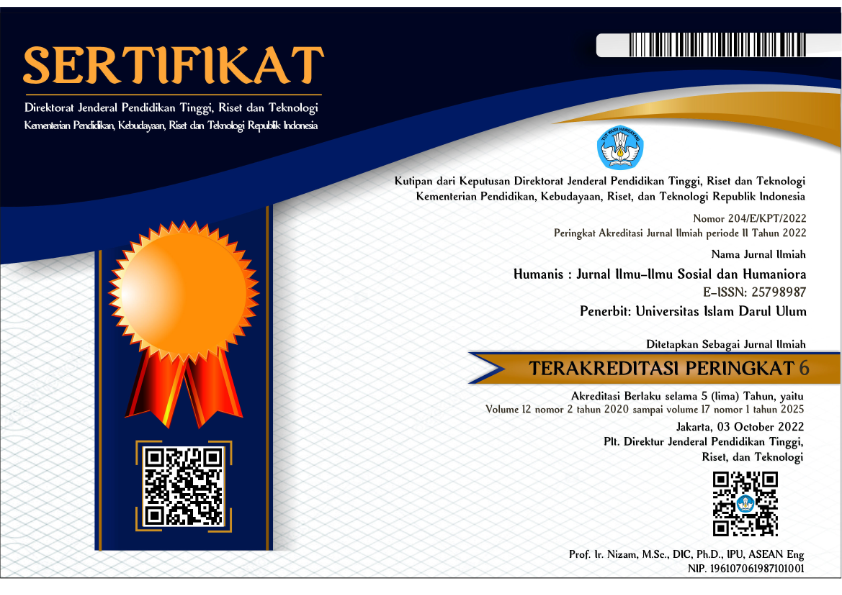THE ANALYSIS OF MOOD AS INTERPERSONAL MEANING IN THE DONALD J. TRUMP PRESIDENTIAL LETTER ADDRESSED TO RECEP T. ERDOGAN ON OCTOBER 9TH 2019
Abstract
This article reports the analysis of the Mood toward Trumps’ presidential letter to Erdogan dated October 9th, 2019. The researcher used a qualitative method based on the theory of systemic functional linguistics which Halliday introduced based on three-meta-functions of language to analyze the data. The researcher focused on interpersonal meaning theory to analyze the mood system, residue, and types of mood in each clause as Trump’s official written utterance. The reason for the analysis was that there are many controversial utterances that have been used by Trump to address Erdogan. The letter was an official letter from US President to Turkey's President as a response to Turkey’s president's decision to launch a military operation in Syria. The analysis has found that there are four imperative moods and fifteen declarative moods shown in the letter. The imperative moods then might be discussed as a controversial context because when Trump used imperative sentences it could be interpreted that Trump used a direct diplomatic communication style with Erdogan. Otherwise, the declarative mood marks the letter as a clear language style in explaining Trump’s purpose and aim systematically. The researcher then suggests to the reader to analyze powerful people's messages conveyed through their letters, speech, diplomatic dialogue, or official forum group discussion to gain more understanding of how meaning contextually works in spoken or written text.
Downloads

This work is licensed under a Creative Commons Attribution-ShareAlike 4.0 International License.







